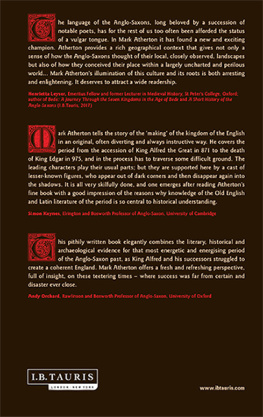GLORIOUS SUMMERS
AND DISCONTENTS
Also by Mike Atherton
Opening Up: My Autobiography
Gambling: A Story of Triumph and Disaster
Athertons Ashes

First published in Great Britain in 2011 by Simon & Schuster UK Ltd
A CBS COMPANY
Copyright 2011 by Mike Atherton
This book is copyright under the Berne Convention.
No reproduction without permission.
All rights reserved.
The right of Mike Atherton to be identified as the author of this work has been asserted by him in accordance with sections 77 and 78 of the Copyright, Designs and Patents Act, 1988.
Simon & Schuster UK Ltd
1st Floor
222 Grays Inn Road
London
WC1X 8HB
www.simonandschuster.co.uk
Simon & Schuster Australia
Sydney
A CIP catalogue copy for this book is available
from the British Library.
ISBN: 978-0-85720-348-9
eBook ISBN: 978-0-85720-350-2
Typeset by Hewer Text UK Ltd, Edinburgh
Printed and bound in Great Britain by CPI Mackays, Chatham ME5 8TD
Contents
Part One Discontents
Part Two Glorious Summers
For David de Caires 19372008
Acknowledgements
Thanks to the various sports editors who have placed some faith in me along the way and who have been a pleasure to work with: Colin Gibson, Jon Ryan and Peter Mitchell at the Sunday Telegraph and Tim Hallissey at The Times. Thanks to Chris Lane at Wisden. Thanks also to Jon Holmes, Ian Chapman and Ian Marshall for their help in transporting this project from idea to completion.
Introduction
David de Caires, the man to whom this book is dedicated, was an inspiring editor. Trained as a lawyer, but for a long time a frustrated publisher, he founded a newspaper in a country that had been denied freedom of expression for two decades and had suffered social and economic collapse due to a failed socialist experiment.
When journalists complain about how difficult things are for newspapers right now, with a combination of the internet and a collapse in advertising posing severe challenges, I think of the story of Stabroek News, the small independent newspaper that David de Caires founded, and that survives him still, despite the most brutal challenges.
His newspaper began as a weekly, with funds scraped together. It was written up by the four or five people then employed, was flown at the weekend in a chartered plane to Trinidad, where the Trinidad Express kindly printed the paper, was flown back and sold throughout the week, until the exhausting process began again. Gradually, enough funds were built up to buy a press and the newspaper became a daily, finally printed in its own country, Guyana.
The problems, though, were many and varied, the majority of which would not be appreciated by proprietors and editors in the developed world: the nightly power cuts; an absence of trained journalists; a population that, initially at least, was scared to voice an opinion or even talk to journalists, so threatening was the environment and history of political suppression; an economy that was shot to pieces, and a government prepared to react to criticism by withdrawing state advertising, which accounted for a significant proportion of the newspapers income.
If this seems an odd way to introduce a compilation of cricket writing, then let me make a confession: David de Caires was my father-in-law and I dont think that some of the pieces that make up this book could have been written in the way they have been written had I not met him halfway through my playing career. It was through him that I began to take an interest in newspapers and the people who work in them. It was through him and his family that I began to understand something of the world outside the boundaries that had hitherto constrained me a breadth of interest that I hope can be detected in some of the pieces on show.
Ive often thought it ironic that David de Caires died the night before the million-dollar match between England and Allen Stanfords superstars. He cared little for cricket poker, horseracing, football and golf were his preferred sporting enthusiasms but as a man of integrity, he would have abhorred everything that Stanford stood for, especially since part of the West Indies was likely to suffer in his, Stanfords, wake.
Having covered the Stanford issue at length, from the moment he arrived in his personalised helicopter to the day he was arrested for suspected fraud; having travelled to Antigua and written thoroughly about it throughout the week, I then missed the million-dollar match because I had to fly from Antigua to Barbados where David had died in his sleep the night before.
The Stanford issue beginning with his arrival at Lords, on one of English crickets most shameful days, to his final disgrace is given full coverage here, and it represents, in microcosm, the shift in the game that is at the heart of this book, as cricket moved into a globalised and market-driven 21st century. The first part of the book deals with many of the discontents that the game has thrown up in the wake of this shift, coincidentally, in the short time that I have worked as the cricket correspondent of The Times. In some ways it was a fortuitous start at that paper, since there has rarely been a week with little to say.
Terrorism, match-fixing and financial malpractice are not topics that a cricket writer might think of as his bread and butter, but cricket has suffered a traumatic period of late. Many of the pieces here are an examination of the game and where it is heading, and under whose control, as it faces up to the challenge of retaining its traditions in a rapidly changing marketplace.
I have been acutely conscious that, in the short time that I have been cricket correspondent of The Times, the game has undergone profound change and suffered from severe convulsions. In a two-year period there has been, in no particular order, a terrorist attack on a cricket team; bombings that have caused the alienation of a cricket nation; the arrival of franchised cricket which threatens the traditional fabric of the game; match-fixing; drugs; and the influence of a fraudster of shocking magnitude, to use the Securities and Exchange Commissions description of Allen Stanford.
It is often overlooked, I think, how important good judgement is to a successful columnist or correspondent. We are there to report, for sure, but in this day and age where news cannot remain news for long, we are also there to give opinion based on experience and, importantly, a feel for the game. Im pleasantly surprised reading through many of these pieces again how my judgement has been more accurate than flawed, both in a cricketing and a wider sense.
In a world dominated by Twitter, where the rush to judgement is so overpowering, the ability to step back from the fray, and to be able to take at least a short time to organise thoughts and opinions, make some calls and hopefully find out a little more, is important.
To give one brief example from the summer of 2010: when the second match-fixing story about Pakistan emerged after a one-day match at The Oval, many took the view that Pakistan should have been banished for good. And yet, when you stopped to think about it, there had been no evidence produced nor has there still that any wrongdoing had taken place. The three players caught red-handed earlier by the News of the World had already been sent home, and it would have been wrong to tar the rest with the match-fixing brush on the basis of no evidence. That was the view taken in The Times against the rantings of the majority.












